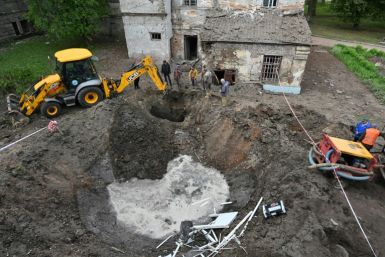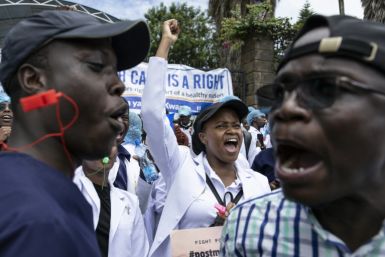Angelina Jolie Effect Inspires Women to Consider Genetic Testing to Avoid Breast, Ovarian Cancer

Angelina Jolie revealed last year that she had a preventative double mastectomy done on her since she was at a higher genetic risk for breast and ovarian cancer. This has led many women opting for genetic testing to see if they carried genes that put them at a higher risk of acquiring breast and ovarian cancer.
After Angelina Jolie opened up about having had a preventative double mastectomy done last year, the number of high risk women considering genetic testing has increased by double, says researchers.
In May 2013, Angelina Jolie made headlines when she announced that she was a BRCA1 gene mutation carrier, and therefore got a double mastectomy done. The doctors had reportedly told her that she had a 50 per cent risk of ovarian cancer and 87 per cent chance of breast cancer.
The process of Mastectomy involved removing breasts and reconstructing them with implants. Jolie also had a family history of breast and ovarian cancer, and by removing her breasts, the Oscar winning actress said that the risk of developing breast cancer dropped to five percent.
Soon after, TIME wrote a cover story titled "The Angelina Effect," which tried to analyze the impact that Jolie's action would have on women who carried the BRCA1 and BRCA2 genes, which puts them at a higher risk of acquiring breast and ovarian cancer. The new study shows that the "Angelina Effect" is indeed true!
Calgary Herald quoted Dr. Andrea Eisen as saying, "The Angelina effect seemed to increase the awareness and the referral for women who were truly at high risk for hereditary breast cancer." Eisen is one of the study's authors and head of the Familial Cancer Program at Sunnybrook.
Though it was evident that the number of women getting themselves tested had increased, the doctors were not sure if these women are truly at risk, or were frightened by her story. Using information from a clinical database, the doctors got to know that the percentage of women referred for genetic counseling increased by 90 per cent.
As per Huffington Post, the doctors found that the number of women referred for genetic counseling increased from 487 to 916, which is 90 per cent - after Angelina Jolie's personal experience was published. Out of them, 105 per cent increase was noticed in the number of women who truly required genetic testing - that is an increase from 213 to 437.
Likewise, 61 patients were diagnosed as carriers of a mutated BRCA gene after listening to Jolie's story. It was 29 patients before, an increase by 110 per cent.
The finding was presented by doctors from the cancer centre at Toronto's Sunnybrook Hospital at the American Society of Clinical Oncology Breast Cancer Symposium in San Francisco.






